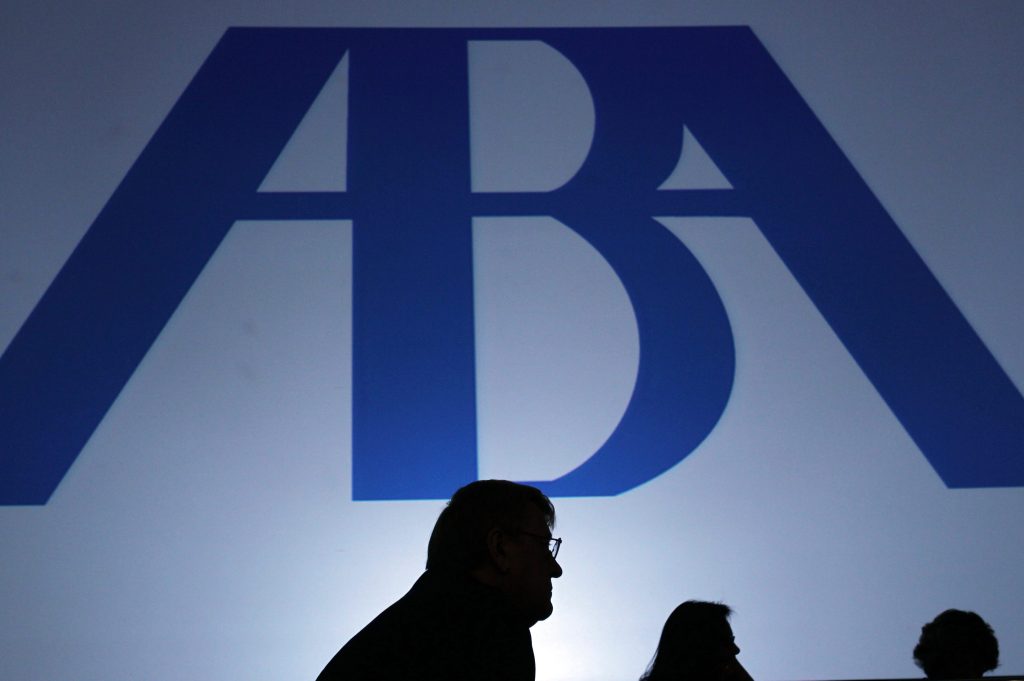The membership group of US attorneys, the American Bar Association (ABA), wrapped up its two-day annual meeting on Tuesday by adopting a host of new policies. They included a resolution that strengthens a lawyer’s obligation to assess whether a client seeks to use the lawyer’s services to further a crime or fraud before accepting or maintaining representation.
The rule change was approved by a vote of 216-102 as an amendment to Model Rule 1.16: Declining or Terminating Representation contained in the ABA Model Rules of Professional Conduct.
The revised rule imposes a more explicit obligation to vet potential clients, as part of an effort to quell concerns about the use of lawyers to facilitate money laundering and other financial crimes. It requires lawyers to assess the “facts and circumstances” of potentially representing a client and requires them to halt work for any client that wishes to use their services to commit a crime.
Client review obligations
Both federal lawmakers and the US Department of Treasury officials have urged the ABA to strengthen its model rule on client review obligations because of such concerns, which typically happen in a transaction when a client asks the lawyer to hold a substantial amount of money in a client trust fund for a business deal, only to ask for the money back later because the deal purportedly did not proceed.
In a speech ahead of Tuesday’s vote, Kevin Shepherd, the ABA’s Treasurer, said that the Treasury Department recently had informed him that a failure to pass the resolution would cause the agency to take immediate regulatory action as well as to lobby for legislation imposing additional obligations on lawyers.
“It’s simple political reality, and we ignore it at our peril,” Shepherd said.
Regulators and gatekeepers
US regulatory agencies have been focusing on the important responsibilities and potential for individual liability for gatekeepers, including lawyers, accountants, underwriters, and auditors for some time now. Recent comments from senior officials in the Department of Justice and the SEC are particularly revealing.
In testimony before the House of Representatives Committee on Financial Services last July, Gurbir Grewal, the director of the Division of Enforcement at the SEC, said: “Robust enforcement also includes a focus on gatekeeper accountability. Gatekeepers, such as accountants and attorneys, are often the first lines of defense against misconduct”, he said.
SEC Chairman Gary Gensler similarly stated at an event in July 2021 that the SEC was committed to using “all of the tools in our toolkit to investigate wrongdoing and hold bad actors accountable – including administrative bars, penalties, injunctions, or undertakings, where appropriate.”
“Gatekeepers, such as accountants and attorneys, are often the first lines of defense against misconduct.”
Girbir Grewal, Director, SEC Enforcement Division
Paul Munter, the SEC’s chief accountant, issued a statement in October 2022 entitled The Auditor’s Responsibility of Fraud Detection in which he highlighted the important gatekeeping role that independent auditors play in the US financial system. Munter also identified auditor’s responsibilities with respect to identifying potential fraud, discussed some examples of auditor shortcomings and provided reminders on good audit practices.
In March 2022, then-SEC Commissioner Allison Herren Lee said that state-level and other professional bar associations are not well-poised for the task of crafting the conduct duties owed by the lawyer as gatekeeper as it pertains to fulfilling regulatory imperatives; instead, she says the SEC itself has the authority to address such concerns and was directed by Congress to do so.
And legislation called the ENABLERS Act (Establishing New Authorities for Businesses Laundering and Enabling Risks to Security Act) – proposed in Congress in October 2021 – seeks to regulate lawyers and law firms as “financial institutions” and require them to disclose suspicious activity by their clients.

















